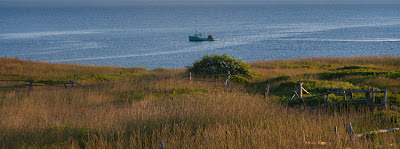|
|
Joyce Murray
Sustainability has been important to Murray for years. She served as a Cabinet Minister and as B.C.'s first-ever Minister of Water, Land and Air Protection. Murray has been instrumental in creating recycling and waste management systems that are now in effect across Canada. She has called for a ban of all shipments of oil and bitumen along B.C.'s pristine and dangerous northern coast and recommended that more oil be refined in Canada and that oil sands subsidies be ended. This is just a brief look at Murray's involvement. The video is a recording of tree-planting back in her early days. She was only 22-years-old at the time and went on to personally plant over half a million trees and develop a business that employed thousands of Canadians. The business now operates in six countries. Joyce Murray on Facebook.
Justin Trudeau
Youth and sports are important to Trudeau. He was a high-school teacher before deciding to enter politics and has represented the Papineau area since 2008. He also played the part of Talbot Mercer Papineau in the 2007 CBC mini-series The Great War. He served as the Liberal critic for post-secondary education, youth and amateur sport but, according to the Huffington Post, has never tabled a private member's bill during his time in office. His campaign slogan is "Be Part of the Change".Unfortunately, Mr. Trudeau has not taken any policy positions during this leadership race so it is difficult to speculate on what his slogan means or what a future Liberal Party would look like if he were elected leader. I would have included a video but there are none available featuring Mr. Trudeau other than those associated with politics so that will have to be left to our imaginations... or perhaps you can find the mini-series on YouTube. Justin Trudeau on Facebook.
Sustainability has been important to Murray for years. She served as a Cabinet Minister and as B.C.'s first-ever Minister of Water, Land and Air Protection. Murray has been instrumental in creating recycling and waste management systems that are now in effect across Canada. She has called for a ban of all shipments of oil and bitumen along B.C.'s pristine and dangerous northern coast and recommended that more oil be refined in Canada and that oil sands subsidies be ended. This is just a brief look at Murray's involvement. The video is a recording of tree-planting back in her early days. She was only 22-years-old at the time and went on to personally plant over half a million trees and develop a business that employed thousands of Canadians. The business now operates in six countries. Joyce Murray on Facebook.
Justin Trudeau
Youth and sports are important to Trudeau. He was a high-school teacher before deciding to enter politics and has represented the Papineau area since 2008. He also played the part of Talbot Mercer Papineau in the 2007 CBC mini-series The Great War. He served as the Liberal critic for post-secondary education, youth and amateur sport but, according to the Huffington Post, has never tabled a private member's bill during his time in office. His campaign slogan is "Be Part of the Change".Unfortunately, Mr. Trudeau has not taken any policy positions during this leadership race so it is difficult to speculate on what his slogan means or what a future Liberal Party would look like if he were elected leader. I would have included a video but there are none available featuring Mr. Trudeau other than those associated with politics so that will have to be left to our imaginations... or perhaps you can find the mini-series on YouTube. Justin Trudeau on Facebook.



